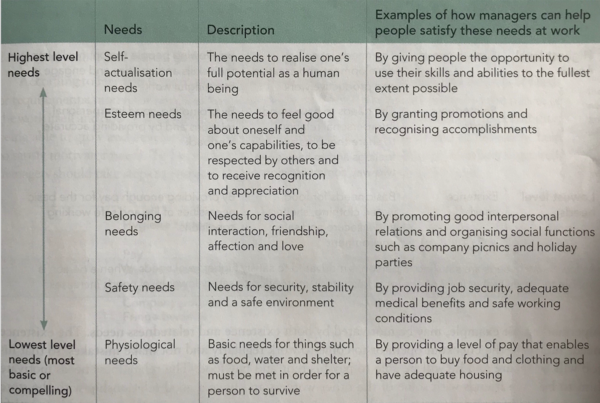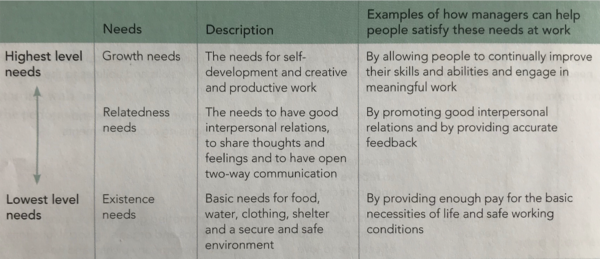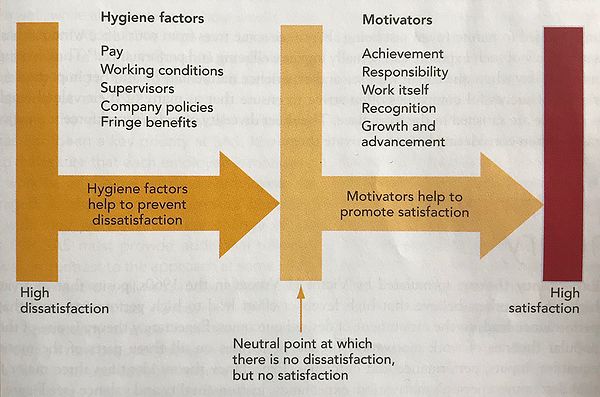Need-Based Theories of Motivation
(→Need Theories) |
(→Need Theories) |
||
| Line 9: | Line 9: | ||
== Need Theories == | == Need Theories == | ||
| − | |||
=== Maslow’s Hierarchy of Needs === | === Maslow’s Hierarchy of Needs === | ||
Revision as of 14:51, 18 February 2018
Contents |
Abstract
In any projects or similar, which has to perform at high level, there is a need for at motivated workforce. To have that, managers must determine what needs employees are trying to satisfy. There are several need-based theories which describe what motivates the human beings.
This article concentrates on some of the theories and how those challenge each other. It will look at how managers can help employees to satisfy these needs at work. At last the limitations are mentioned.
Need Theories
Maslow’s Hierarchy of Needs
It argues that there are five stages of human needs that motivate our behaviour.
Alderfer's ERG Theory
Clayton Alderfer observed that individual needs differ according to circumstances. They do not need to move in an order of progression.
Satisfaction-Progression
Frustration-Regression
McClelland's Need Theory
Herzberg's Motivation-Hygiene Theory
Comparison
Application
This section is in progress.
Limitations
This section is in progress.
Annotated bibliography
This section is in progress.
Di Waddell, Gareth R. Jones and Jennifer M. George (2013). Contemporary Management (3rd ed.).
https://wikispaces.psu.edu/display/PSYCH484/2.+Need+Theories



